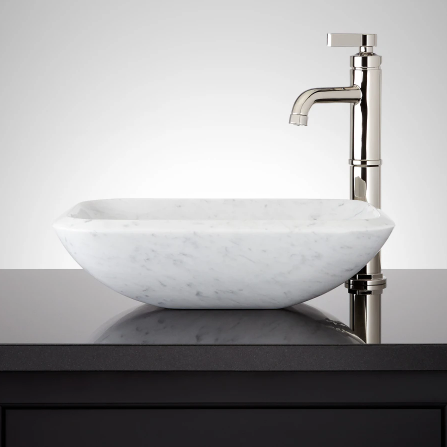Do nature stone sinks require sealing?
Some nature stone sinks, particularly those made from certain types of natural stones like marble and granite, may require periodic sealing to protect against staining and moisture absorption. Sealing is an essential step in maintaining the appearance and longevity of these stone sinks.
Natural stones, including marble and granite, are porous to varying degrees. This means they can absorb liquids if left unprotected, potentially leading to staining or discoloration over time. Sealing helps to create a protective barrier on the stone's surface, reducing its porosity and making it more resistant to stains and water penetration.
The frequency of sealing depends on factors such as the type of stone used, the level of porosity, and the amount of use the sink receives. As a general guideline, marble and granite sinks may need to be sealed every six months to two years, depending on the specific product used and the manufacturer's recommendations.
To determine if your nature stone sink requires sealing, perform a simple water drop test. Sprinkle a few drops of water onto the sink's surface. If the water beads up and doesn't penetrate into the stone after a few minutes, the sink is likely still adequately sealed. If the water is absorbed into the stone, it's time to reapply the sealer.
When sealing a nature stone sink, it's essential to follow the manufacturer's guidelines and use a high-quality, penetrating sealer designed specifically for natural stones. Be sure to clean the sink thoroughly and allow it to dry before applying the sealer. Applying the sealer evenly and allowing it to fully cure according to the instructions will ensure optimal protection for your nature stone sink.

Remember that not all nature stone sinks require sealing. Some stones, like quartzite and certain granites, are less porous and may not need sealing. Always refer to the manufacturer's care and maintenance instructions for your specific nature stone sink to ensure proper care and protection.
